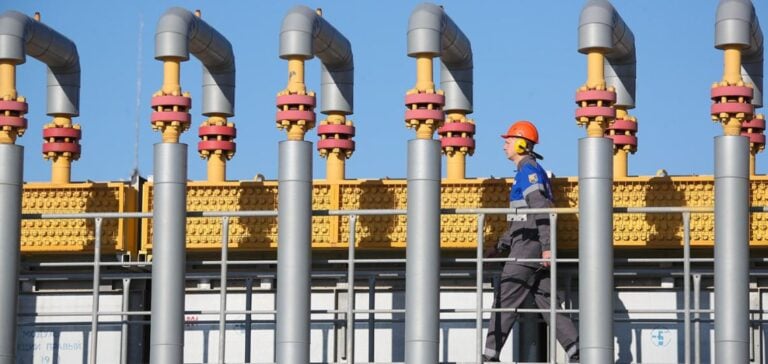Russian natural gas exports to Europe via the TurkStream subsea pipeline rose by 10.3% in May compared to the previous month, based on data compiled by Reuters from the European gas transmission group Entsog. This increase followed Ukraine’s decision not to renew its transit agreement with Moscow, which expired on January 1, leaving Turkey as the only remaining route for Russian gas to reach the continent.
The average daily flow in May stood at 46.0 million cubic metres, up from 41.7 million in April. However, that figure was lower than the 47.2 million recorded in May 2024. Since the beginning of the year, approximately 7.2 billion cubic metres of gas have been exported via TurkStream, compared to 6.6 billion during the same period last year.
TurkStream, Gazprom’s sole strategic route
Russia continues to rely on TurkStream as its primary corridor for gas transport to southeastern and central Europe, as other routes have become unavailable. The pipeline crosses the Black Sea to Turkey before reaching several European markets through Bulgaria, Serbia and Hungary.
Gazprom, the Russian state-owned export monopoly, has not published monthly statistics since early 2023 and did not respond to Reuters’ requests for comment on the May figures. Transported volumes remain far below levels seen prior to the war in Ukraine.
Volumes still well below pre-crisis levels
In 2022, Russia exported 63.8 billion cubic metres of gas to Europe via various routes. That volume fell by 55.6% to 28.3 billion in 2023, before slightly increasing to around 32 billion in 2024. At their peak between 2018 and 2019, annual flows to Europe reached between 175 billion and 180 billion cubic metres.
Despite the monthly increase seen in May, Russian gas exports to Europe remain limited by infrastructure constraints and ongoing geopolitical tensions. TurkStream’s current capacity alone cannot offset the loss of former transit routes.






















